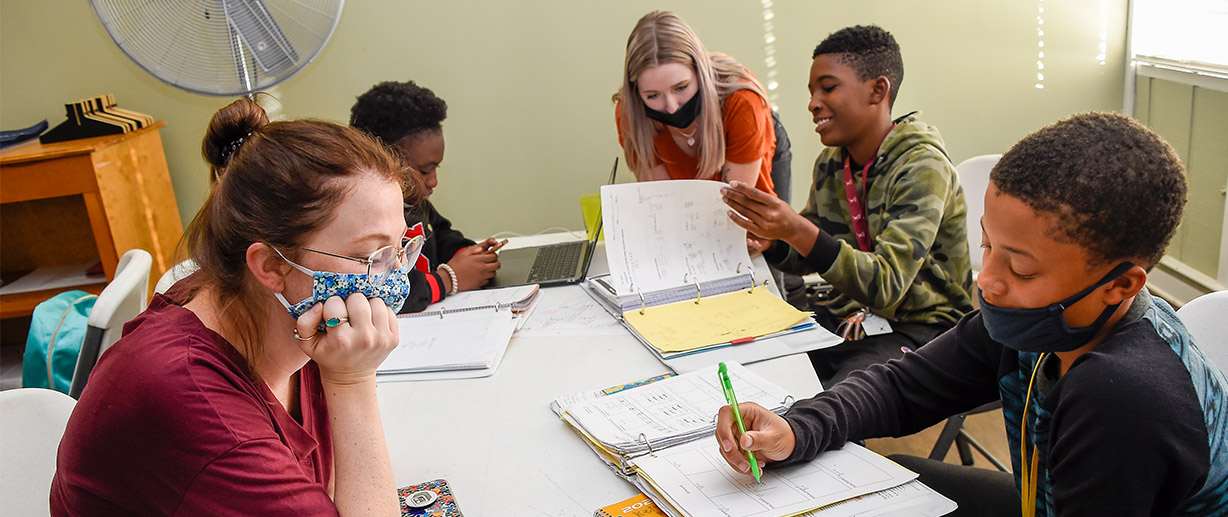By Robert W. Dalton
The first time Jacqueline Hansen ’24 met the students she would be working with in an after-school homework club, she was hooked.
“I just fell in love with it,” says Hansen, a sociology and anthropology major from Clover, South Carolina. “The kids are always so happy and eager to learn. When I go there, even if I’ve had a bad day, they just make everything better.”
The clubs meet twice weekly at two Spartanburg Housing apartment complexes, Prince Hall and Camp Croft Courts. Wofford students assist elementary and middle school students in completing their homework assignments.
“We’re trying to bridge gaps and provide educational opportunities,” Hansen says. “We want to make sure the kids don’t get left behind.”
The clubs have received national recognition, earning Spartanburg Housing a 2021 National Award of Merit in the resident and client services category during the 2021 National Association of Housing and Redevelopment Officials Online National Conference and Exhibition.
The clubs got their start as a project during the 2019-20 academic year through Wofford’s sustainability seminar led by Dr. Alysa Handelsman, assistant professor of sociology and anthropology. The seminar is part of Wofford’s Milliken Sustainability Initiative.
Alex Hill ’21 and Cierra Fowler, Spartanburg Housing’s director of resident services and community engagement, partnered to design the club. Hill and her partner in the class, Carlyle O'Herron ’20, went door-to-door conducting surveys and led a focus group to get input from the community.
“We did a lot of research, but we didn’t want to come in and say this is what we think would be best for you,” says Hill, who is in her first year of law school at Campbell University. “We spent a lot of time working with teachers at Cleveland Academy and parents in the community to make sure we provided something they wanted and could use.”
They launched the first club at Victoria Gardens in February 2020. They held sessions twice each week until March, when the COVID-19 pandemic shut everything down.
“That was just so devastating,” Hill says. “Not only was I not going to get to see the kids anymore, but I knew they needed the homework club more than ever with everything going online.”
Fowler also worried about the impact of online learning. She thought it was imperative to revive the club as students returned to in-person classes. Wofford students were more than happy to help.
Sarah Buckmaster ’24, a sociology and anthropology major from Simpsonville, South Carolina, began volunteering in September, and she wants to expand programming.
“We want to get the students involved in extra-curricular activities like sports, arts and crafts, drama lessons and life-building skills,” Buckmaster says. “We want to build their confidence so they can learn to be leaders at a young age.”
Handelsman also is looking for new opportunities, including linking the homework clubs with a food-sharing program and implementing a chef’s club that offers kid-friendly recipes.
“This type of multilayered programming demonstrates how homework club continues to evolve and grow with new ideas and initiatives,” Handelsman says. “It shows the depth of student engagement and collaboration in designing and implementing meaningful programming with long-lasting impacts on everyone involved.”
